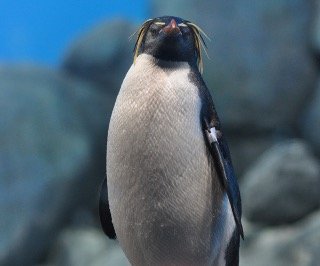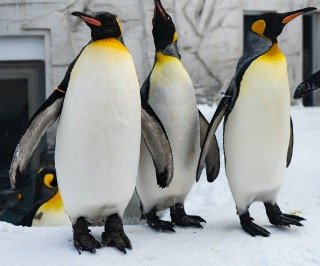
How to Choose the Right Pet Bird Food?
Birds are a very popular pet. They vary in shape and size. Different birds need different nutrients, so it is very important to find the right food for your bird. There are general nutrient requirements for birds as well as some special needs.
Pet bird’s nutrient requirements
There are basic 6 categories of nutrients that all birds require to survive:
- Water
- Carbohydrates and fiber
- Proteins
- Lipids ( fats and oil)
- Vitamins
- Minerals
Your pet bird requires a Balanced diet that contains all these nutrients in the required amount.
You might also be interested to know How To Get Rid of Pet Bird Smell (Ideas & Tips)?
Birds pet food
Seeds are considered bird food but only bird food is not enough to give them the important nutrients they need. There is very little calcium and a lot of fat. This is why a lot of vets and animal food experts consider seed birds junk food.
Pet birds can go beyond their ideal weight pretty quickly and become overweight by eating all the rich foods just like other pets such as dogs and cats. So a seed food diet is not such a healthy idea. Adding fresh fruits and vegetables is very beneficial for them as fruits and vegetables have vitamins and minerals. You can choose among the suggestions below:
Fruits
- Mango
- Banana
- Orange
- Berries
- Melon
- Apple
- Pineapple
Vegetables
- Carrots
- Celery
- Capsicum
- Cooked beans
- Cauliflower
- Squash
- Sprouts
- Asparagus
Supplements to your bird’s food
Vets and food specialists recommend supplements to the birds who refuse to eat anything but seeds, they are called “seed junkies.” If your bird eats vegetables, fruits, and other things, you need not worry about these supplements.
But if your bird is laying eggs, molting or recovering from an injury or an illness, you shills consider dietary supplements to bring it back to its healthy self.
These can be beneficial as they are just vitamin and mineral supplements. If given as per the vet’s recommendation they can make sure of the nutrient requirements but if given more than that or without referring to a dietary specialist, you might over-supplement your bird which can harm it. So it is very important to refer a vet or dietary specialist.
Let us take a look at the eating of some common pet birds and how they fulfill their nutritional requirements:
Bird food for Parrots
Parrots are one of the most common and popular pet birds. A balanced diet for them should be of 80 percent high-quality commercial pallet with fresh fruits and vegetables. Experts think that all pallet food is better than a mixture of commercial pallet and seeds as your bird might leave the pallet and just eat the seeds as they are tastier.
The commercial pallets which are made for parrots have their own unique formula. They are a nutritious combination of grains, seeds, vegetables, and fruits. To make sure that the parrot has a balanced diet, vitamins and minerals are also added.
Different companies offer different combinations of these pallets, you can compare the list log ingredients and their percentage to see what fits your pet the most. You can also directly ask the vet about the same.
Bird food for Parakeets
Parakeets are small-sized parrots that have different nutritional requirements than larger parrots. There are about 100 species of parakeets. Wild parakeets’ diet includes different types of plant foods such as seeds, varying on the season. Parakeets’ intake of seeds should not exceed to avoid rapid weight gain.
To feed your pet bird parakeet, a diet made up of pellets formulated for the specific nutritional requirements of parakeets is ideal as pallets have the right combination of nutrients.
Parakeets prefer seeds, their favorite is millets seeds but they should be fed in small quantities. Apart from seeds and pallets, parakeets’ diet should also include vegetables and fruits up to 20-25 percent of their diet. Some suggestions are apples, broccoli, corn, cauliflower, bananas, etc.
Bird food for finches
Finches are one the smallest pet birds. Canary belongs to the finch family. Wild finches’ diet includes seeds like every other bird, but especially grass seeds and other plant foods such as fruits and berries. Some of them also eat insects.
Commercial pallets for finches should make the bulk of their diet. You can choose from the variety of the small pallets available, in order to meet its nutritional requirements. With pallets, you can also add a limited quantity of seeds as they are high in fat and can make finches overweight. It is recommended to give finches about one teaspoon of seeds per day to keep them healthy.
In addition to seeds and pallets, finches should also be fed with vegetables and fruits. About 20 percent of their diet should include fruits and vegetables. Some suggestions are strawberries, blueberries, raspberries, kale, corn, apples, capsicum, etc.
Bird Food for Cockatiels
Cockatiels are a small type of parrot and are a part of the cockatoo family. Wild cockatiels’ diet consists of seeds. Pet cockatiels also like seeds but seeds should not be the main component of their diet. A measured small amount is fine but not more than that.
It is recommended to give cockatiels a high-quality pallet-rich die to make sure of their nutritional requirements. To make the diet balanced, fruits and vegetables should also be added.
Pet cockatiels’ diet should include about 75-80 percent pallets and 20-25 percent of fruits, vegetables, and seeds. Pallets with all-natural compounds and no artificial color or flavor should be a preferred choice.
Conclusion
In the above article, we discussed pet bird food and supplements. Further, we discussed the dietary requirements of different types of common pet birds namely, parrots, parakeets, finches, and cockatiels.





